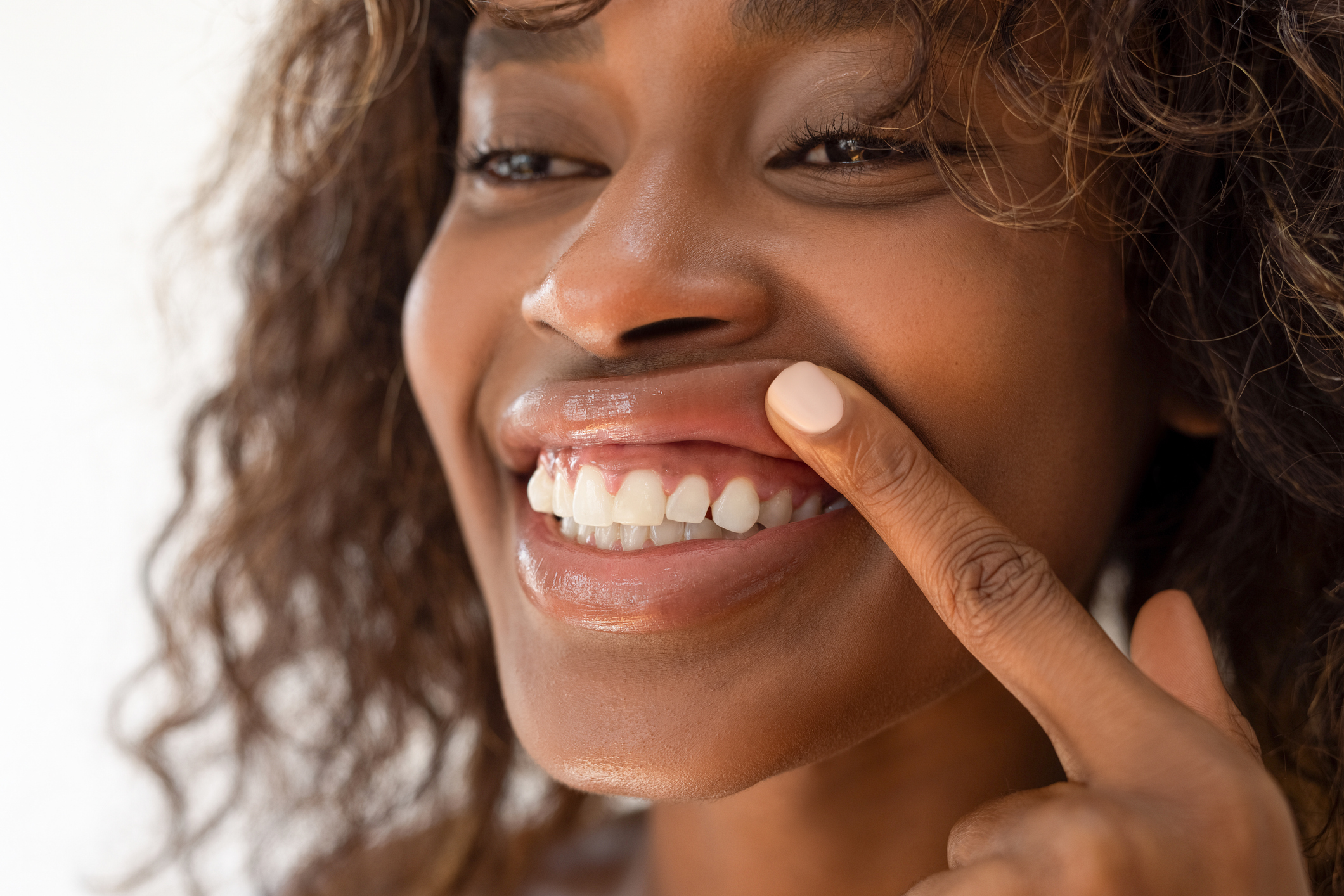
23 May Can You Reverse Receding Gums? Here’s What Dentists Say
You’re brushing or flossing your teeth, and you look in the mirror to see more gum than usual. Gum recession is very common. According to the Cleveland Clinic, millions of people in the U.S. have receding gums and the problems that come with it. Not only are receding gums unattractive, they can also impact your oral health.
So, can you reverse receding gums? Read on to find out what causes gum recession and what you can do to treat the condition.
What Causes Receding Gums?
Gum recession can be caused by a singular cause, or a combination of factors. Here are some of the most common causes:
Poor Oral Hygiene
When you do not brush your teeth thoroughly or avoid flossing, your gum health will suffer. Your gums may become more sensitive as a result.
Some key factors in oral hygiene that can lead to gum recession include:
- Avoiding brushing your teeth
- Surface-level brushing
- Limited flossing
- Plaque buildup
- Aggressive Brushing
Brushing thoroughly is important, but do not brush your teeth too aggressively. It can actually do more harm than good when it comes to your gum health.
When you brush too aggressively, it can traumatize the gum tissue and cause it to recede. Excessive brushing may even wear away your gum tissue.
Periodontal (Gum) Disease
Gum disease, or periodontal disease, occurs when your gum tissue swells and begins to pull away from the teeth. Inflammation can often lead to infection, making it more painful to eat, chew, and brush your teeth. You may avoid visits to the dentist because gum exams will be uncomfortable.
The key to resolving gum disease is early detection and treatment. One common treatment method is deep cleaning. Your dentist will numb each side of your mouth and flush out your gums, usually by quadrant.
You may need several deep cleanings before your gums are healthy enough to resume regular cleanings. Your dentist may evaluate your gum sensitivity and depth during each visit.
Genetics
Unfortunately, even if you take great care of your teeth, genetics can play a major role in receding gums. If your immediate family members suffer from gum recession, you will likely experience it too.
Talk to your dentist if you have concerns about gum recession. They can give you tips to prevent it from occurring, such as improving oral health.
Aging
Although anyone can be affected by gum recession, it is much more prevalent in seniors. According to Medline Plus, you’re more likely to experience gum recession in your golden years. Receding gums can impact seniors more due to:
- Thinner, less elastic gum tissue
- Slower cell regeneration
- Weaker immune system
- Tobacco usage
Along with the many other negative consequences of consuming tobacco, you can add gum recession to the list. Tobacco in any form is terrible for your gums and can even cause oral cancer.
Since smoking affects circulation, it limits the blood circulation to keep the gums healthy. It can also cause your gums to change color.
Even non-smoking options like chewing tobacco will impact your gums. If you often keep tobacco in the corner of your mouth, watch for gum damage there. You may also notice receding gums.
Teeth Grinding
Teeth grinding may seem like a harmless habit, but it can be detrimental to your gums. The pressure from teeth grinding and jaw clenching can cause the gums to pull away from the teeth.
You may find it impossible to stop grinding your teeth if it’s something you do in your sleep. The solution? A customized mouthguard that can protect your teeth and relieve some of the direct pressure.
Treating Receding Gums
When it comes to treating gum recession, there is no one-size-fits-all solution. Your treatment plan depends on many factors, so it’s important to discuss the options with your dentist.
Here are some of the most common methods for treating receding gums:
Gum Grafting Surgery
Think of gum grafting surgery as a type of transplant. Your dentist will take healthy gum tissue from other areas of the mouth and place it where the gum recession occurs.
Gum grafting can improve your appearance and help protect your exposed teeth with healthier gum tissue. When your teeth have more gum tissue to anchor onto, they’re less likely to fall out as a result.
Your dentist may remove tissue from the roof of your mouth or connective tissue from the palate to achieve the desired result. They can even utilize donated human tissue if you don’t have a suitable donor site.
Professional Deep Cleaning
Deep cleaning, such as root planning and scaling, can foster healthier gums. This method may not help gums grow back, but it can slow gum recession. It also improves your overall oral health.
Improved Oral Hygiene
The most cost-effective method for treating receding gums is to change your dental habits at home. Focus on intentional brushing, brushing your teeth for two minutes a day in the morning and evening.
Consider switching to an electric toothbrush. These devices time each quadrant, so you get your two minutes of brushing in. They also provide a more thorough clean.
Don’t underestimate the importance of flossing. When debris gets stuck in between your teeth, it can cause irritation and infection in your gums. Flossing can remove those irritants.
Quitting Smoking and Other Tobacco Products
Finally, if you consume tobacco, this is another reason to quit. When you stop smoking or chewing tobacco, you can allow your gums to heal.
Can You Reverse Receding Gums?
Are you still wondering, can you reverse receding gums? The answer is complicated. However, some solutions can help halt gum recession or offer limited gum regrowth.
At McIlwain Dental Specialists, our dentists have more than 40 years of experience. We are committed to excellent service, professionalism, and affordability. We offer a wide range of services so you can take care of your dental needs, all in one place.
Are you ready to achieve the smile of your dreams? Don’t wait to schedule an oral consultation with McIlwain Dental Specialists today.


